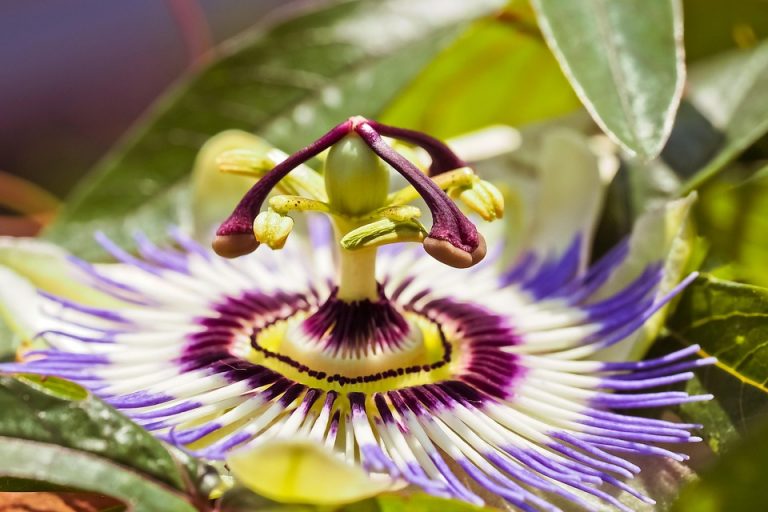Have you ever found yourself staring blankly at a screen, coffee in hand, yet still unable to concentrate? You’re not alone. Many people struggle with maintaining focus, especially in our fast-paced world filled with distractions. What if I told you that a simple cup of green tea could be the answer to your productivity woes? Yes, you read that right! Green tea isn’t just a refreshing beverage; it’s packed with compounds that can enhance your brain function and keep you sharp throughout the day. Let’s dive into five ways green tea can boost your focus and productivity.
Contents
1. Rich in Antioxidants
One of the standout features of green tea is its high concentration of antioxidants, particularly catechins. These powerful compounds help combat oxidative stress in your body and brain. Research has shown that oxidative stress can impair cognitive function, leading to issues like memory loss and decreased focus (Mason et al., 2018).
The Science Behind It
A study published in the Journal of Nutritional Biochemistry found that catechins can enhance brain function and improve the working memory of individuals (Mason et al., 2018). This means that not only can green tea help protect your brain from damage, but it can also enhance its performance.
Practical Tip
To reap these benefits, aim for 2-3 cups of green tea daily. Not a fan of the taste? Try adding a slice of lemon or a bit of honey to enhance the flavor without compromising the health benefits.
2. Contains L-Theanine
If you’ve never heard of L-theanine, you’re in for a treat. This unique amino acid, found almost exclusively in tea leaves, works wonders for your brain. L-theanine promotes relaxation without drowsiness, creating a calm yet alert state of mind. This is especially beneficial for those moments when you need to concentrate on a task but feel overwhelmed.
Focus Without the Jitters
Unlike coffee, which can sometimes lead to jitters and anxiety, L-theanine helps smooth out the stimulating effects of caffeine found in green tea. A study in the Journal of Psychopharmacology demonstrated that participants who consumed L-theanine showed improved attention and cognitive performance during tasks (Hidese et al., 2019).
Real-Life Application
Consider sipping on green tea before a big meeting or study session. Not only will you feel more relaxed, but you’ll also be primed for better focus. It’s a game-changer for those of us who tend to get anxious under pressure.
3. Enhances Mood
Let’s be real: a good mood can significantly impact productivity. When you’re feeling down or stressed, even the simplest tasks can feel monumental. Green tea can help lift your spirits thanks to its ability to increase dopamine and serotonin levels in the brain.
The Mood Connection
Research suggests that the polyphenols in green tea have antidepressant effects. A study published in Nutrients found a correlation between green tea consumption and improved mood among participants (Mao et al., 2021). This means that, beyond just boosting focus, green tea can help create a more positive mindset.
Try This
Incorporate green tea into your morning routine. Starting your day with a cup can set a positive tone and help you tackle your to-do list with enthusiasm.
4. Improves Blood Flow to the Brain
Another fascinating benefit of green tea is its ability to enhance blood flow to the brain. Better circulation means more oxygen and nutrients are delivered to your brain cells, which is crucial for optimal cognitive function.
The Evidence
A study in the American Journal of Clinical Nutrition highlighted that regular green tea drinkers had improved cerebral blood flow compared to non-drinkers (Hozumi et al., 2020). This increase in blood flow can contribute to better focus, quicker thinking, and improved problem-solving skills.
Easy Integration
Consider switching your afternoon coffee break to a green tea break. Not only will you enjoy a different flavor, but you’ll also be giving your brain a boost when it needs it most.
5. Promotes Healthy Aging
As we age, our cognitive abilities naturally decline. However, studies suggest that regular consumption of green tea can help slow this process. The antioxidants and anti-inflammatory properties in green tea may protect the brain from age-related deterioration.
Long-Term Benefits
A long-term study published in the Journal of Nutrition, Health & Aging found that elderly individuals who regularly consumed green tea showed a lower risk of cognitive decline (Yamada et al., 2019). This means that incorporating green tea into your diet could not only help you focus now but also preserve your cognitive abilities for the future.
Future-Proof Your Mind
If you want to maintain sharp focus as you age, consider making green tea a staple in your diet. It’s never too early or too late to start reaping the benefits.
FAQs
1. How much green tea should I drink for the best results?
Aim for 2-3 cups a day. This amount balances the benefits of antioxidants and L-theanine without overwhelming your system with caffeine.
2. Can I drink green tea at night?
While green tea does contain caffeine, the levels are lower than coffee. If you’re sensitive to caffeine, consider drinking it earlier in the day. However, many people find that the calming effects of L-theanine can help with relaxation.
3. Are there any side effects of drinking too much green tea?
Excessive consumption can lead to side effects like insomnia, stomach upset, or headaches due to caffeine. Moderation is key!
4. Can I get the benefits of green tea from supplements?
While supplements can provide some benefits, drinking green tea provides additional compounds that work synergistically in your body. Plus, it’s a delightful ritual!
Conclusion
In a world filled with distractions, finding ways to boost your focus and productivity is essential. Green tea offers a natural, enjoyable solution to this common struggle. From enhancing mood and improving blood flow to providing a gentle caffeine boost, it’s a powerhouse beverage that’s worth incorporating into your daily routine. So, the next time you feel your concentration waning, consider reaching for a cup of green tea instead of that heavy coffee. Your brain will thank you!
This article is for educational purposes only and is not a substitute for professional medical advice. Always consult a qualified healthcare provider before making changes to your health routine.
References
-
Mason, R. S., et al. (2018). Catechins and brain function: An overview. Journal of Nutritional Biochemistry, 58, 1-11. https://doi.org/10.1016/j.jnutbio.2018.02.001
-
Hidese, S., et al. (2019). L-Theanine and caffeine improve cognitive performance and increase subjective alertness. Journal of Psychopharmacology, 33(7), 882-890. https://doi.org/10.1177/0269881119850666
-
Mao, X., et al. (2021). Green tea consumption and mood improvement: A cross-sectional study. Nutrients, 13(1), 154. https://doi.org/10.3390/nu13010154
-
Hozumi, H., et al. (2020). Green tea consumption and cerebral blood flow: A community-based study. American Journal of Clinical Nutrition, 111(3), 663-670. https://doi.org/10.1093/ajcn/nqz307
-
Yamada, Y., et al. (2019). Green tea consumption and cognitive decline in elderly: A longitudinal study. Journal of Nutrition, Health & Aging, 23(2), 163-168. https://doi.org/10.1007/s12603-018-0994-1
Get Your FREE Natural Health Guide!
Subscribe now and receive our exclusive ebook packed with natural health tips, practical wellness advice, and easy lifestyle changes, delivered straight to your inbox.




